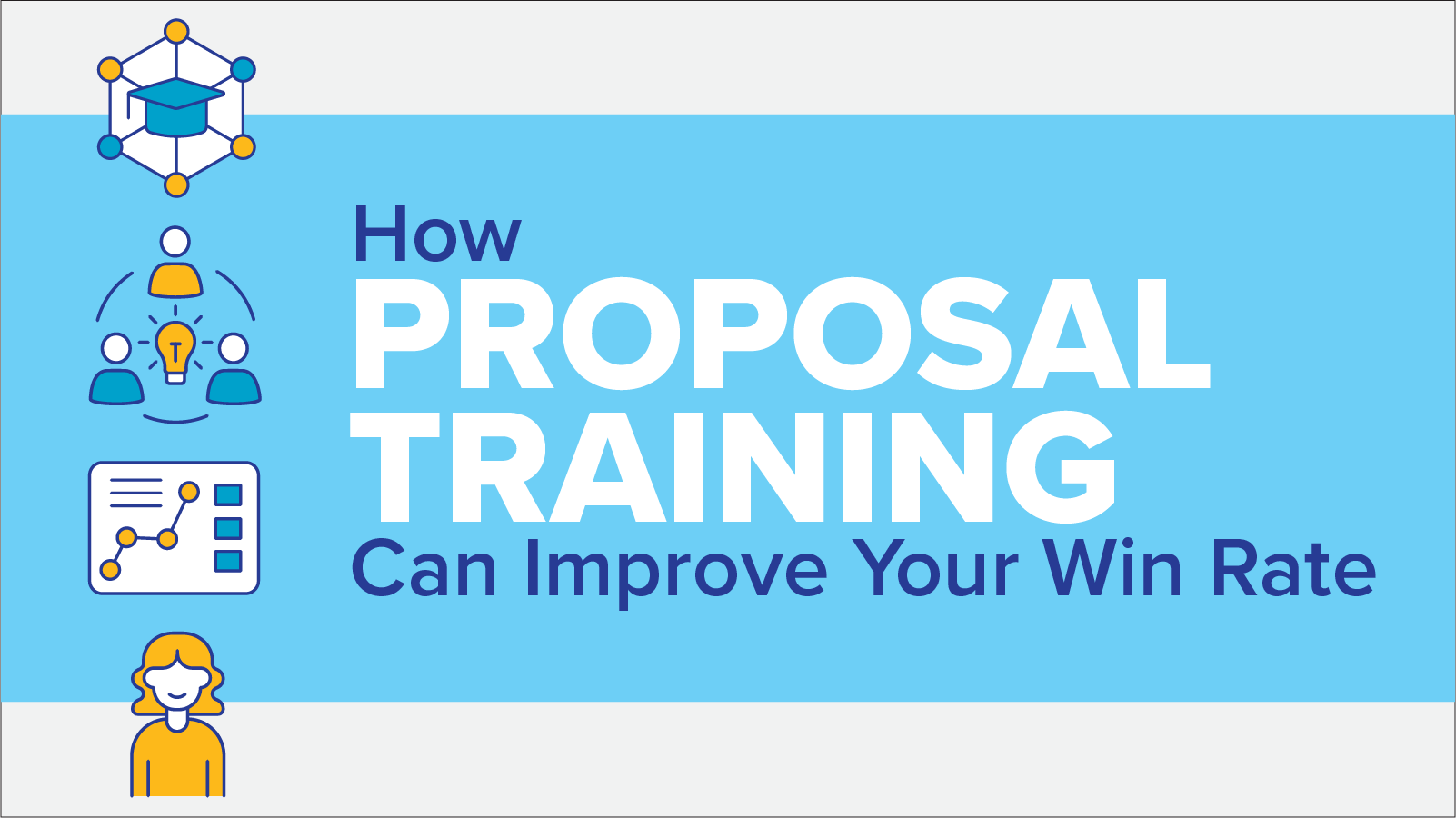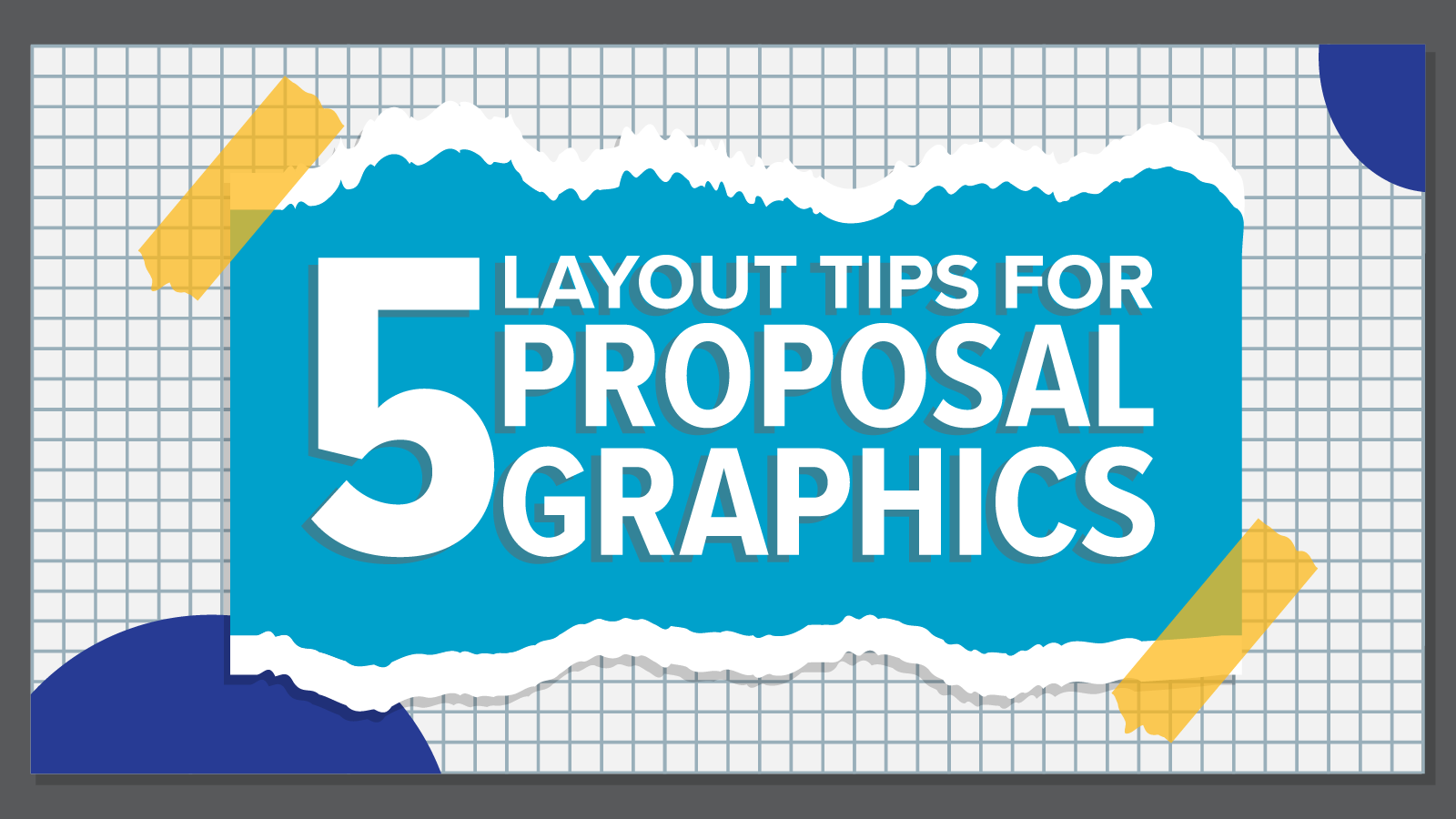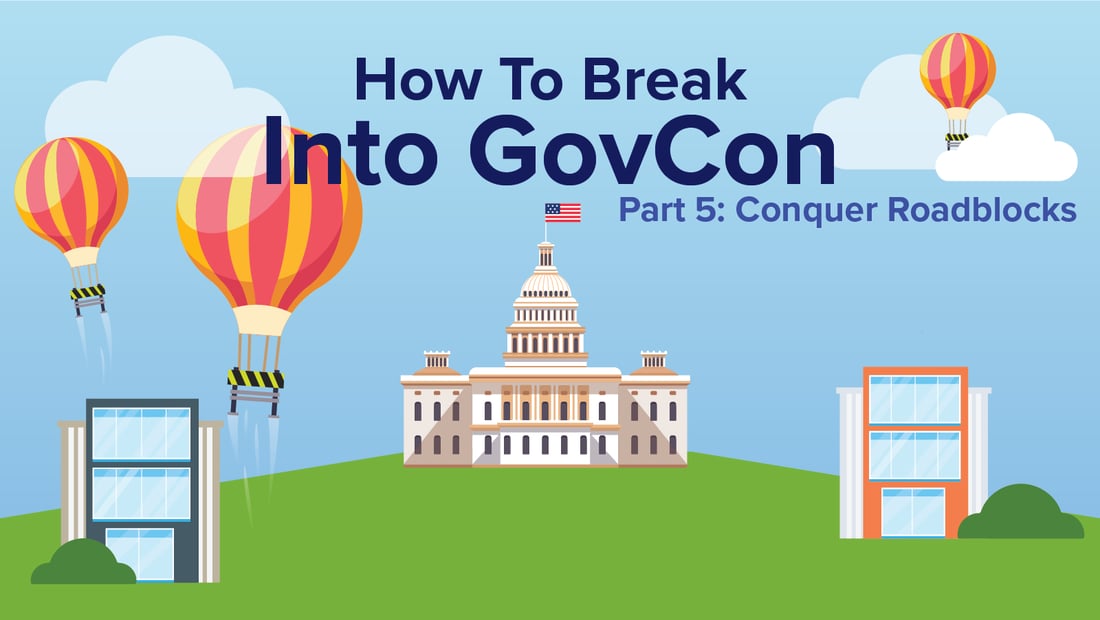
Government agencies want to work with companies they know and trust. Building that trust is largely contingent on your ability to prove you can do the work.
But this can become an obstacle for small businesses without much experience. You can’t prove your company’s capabilities if you’re not given the opportunity. Yet many Government buyers won’t do business with you without proof of prior experience. It can feel like a no-win situation. Don’t get discouraged, however. Stay the course because, in this article, we share how you can overcome this challenge.
This is the fifth article in a series devoted to small businesses that want to break into Federal Government contracting. The series posts include:
- Introduction (Know Your Basics)
- Clarify Your Brand
- Confirm Your Prospects
- Connect with Customers
- Conquer Roadblocks
- Capture Opportunities
- Compete to Win
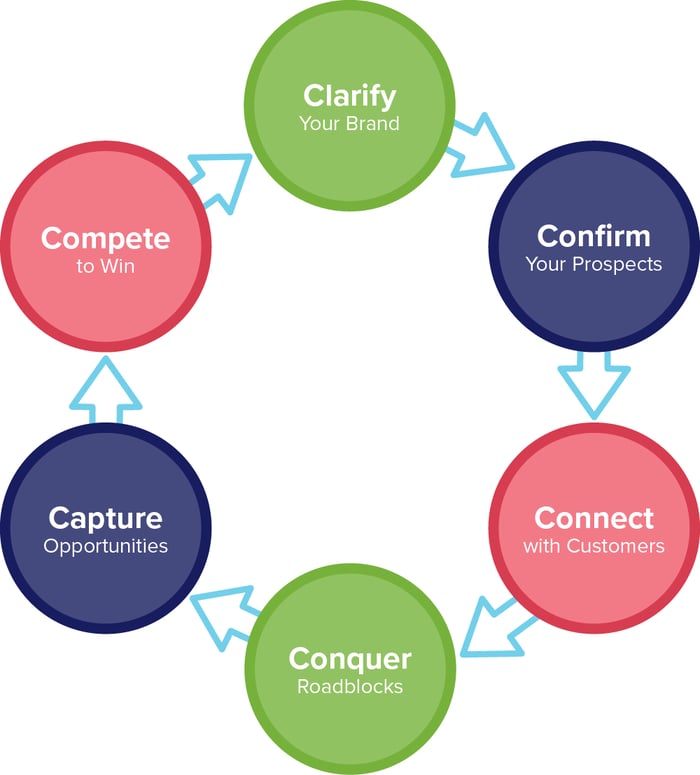
In this article Conquer Roadblocks, we discuss various strategies you can use to eliminate barriers to success in the federal market.
Identify Roadblocks
Before we discuss strategies, let’s first identify some of the most common obstacles that get in the way of small businesses winning work in the federal space.
- Minimal (or no) Past Experience/Performance- Government agencies are risk averse. Usually, before they will commit to work with you, you must provide them with demonstrated work experience that proves your ability to perform work similar to their task requirements. Without that proof, it’ll be difficult to persuade them to work with you.
- Insufficient Customer Knowledge- Agencies want to feel like you understand their problems and have a specific solution you tailored and customized for them that can meet their unique needs. If you don’t know them well, it’ll be difficult to convince them you have their best interests at heart.
- Lack of Necessary Contract Vehicles- Many federal agencies buy services and products using large IDIQ contract vehicles such as ENCORE and OASIS. They release an IDIQ solicitation for contractors to compete to win that contract vehicle. If the contractor wins the IDIQ, they can compete for task order work issued under that contract vehicle. If your company doesn’t have access to your target agency’s preferred contract vehicle, you can’t compete for work.
- Missing Qualifications for Specific Small Business (SB) Set-Asides- Contracting officers may designate specific set-asides for a particular contract. Even if you’re a small business, there’s the likelihood you don’t possess every kind of SB set-aside. If you don’t have that CO’s preferred SB designation, you can’t compete.
Assess Strategies
Forming strong partnerships with other contracting companies can help you gain entry into your targeted agencies so you can build relationships with them and win new business. Various forms of partnerships exist, and it’s essential to understand the differences because the type of relationship legally binds the parties to specific roles and responsibilities.
Execute for Success
Many companies build experience and expertise by winning contracts as a prime and subcontractor. Don’t limit yourself to only pursuing work as the prime. Consider entering the market as a subcontractor. You can leverage your subcontracting experience later when you bid as the prime. In addition, build relationships with large and small businesses. Both can offer you exciting pursuit opportunities.
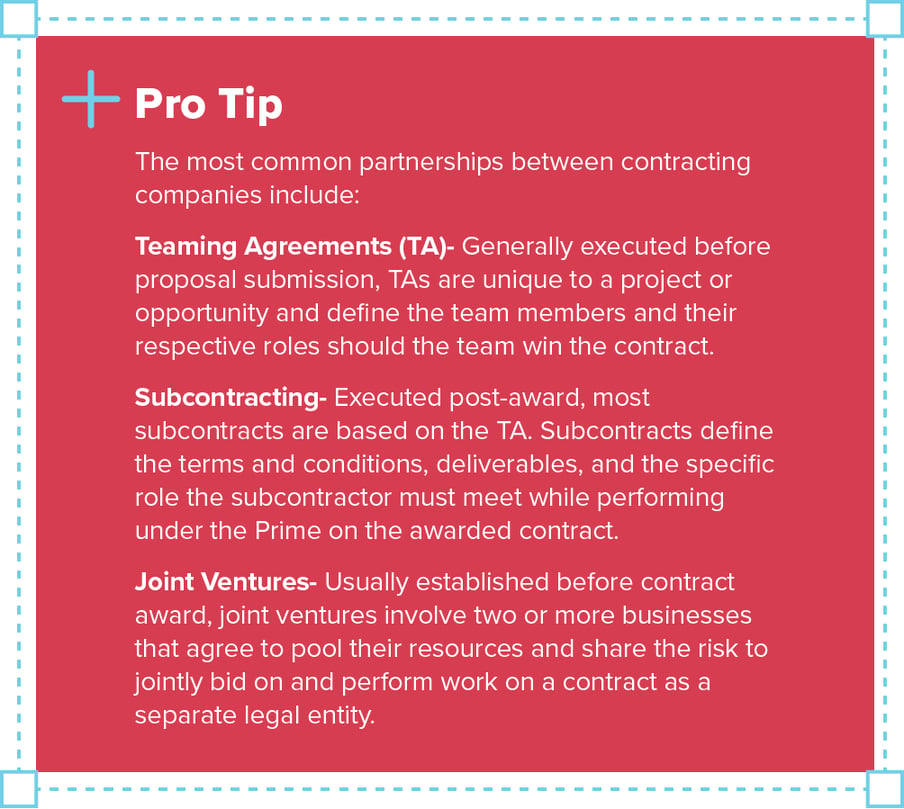
1. Do Your Research
Research potential partners to ensure they are your best-fit option for future opportunities. Look for companies that can complement your offerings so you can bring prospective agencies well-rounded solutions. Begin now to cultivate relationships with those companies so when opportunities arise, you can quickly respond.
The earlier in the BD lifecycle you begin researching partners, the better. As you research, strongly consider partnering with companies that meet the following criteria:
- Local Presence- Government agencies value easy accessibility. Having a local presence builds trust and confidence that you can be responsive and available to the customer as needed. If you’re not local to the customer, consider partnering with a company that has a local presence.
- Known by the Customer- If you don’t know the customer well, form partnerships with companies that have an established relationship. Consider subcontracting under the prime with an existing contract to build credibility and experience.
- Contract Vehicles, Set-Asides, Expertise and Experience- If applicable, look for companies that already have the customer’s preferred contract vehicles and/or set asides. Also, consider companies with specialized experience that can help fill any technical gaps you might have in task requirements. Companies with current or past experience performing similar work on contracts for your targeted customer is another key strategy.
2. Consider Mentor-Protégé Programs
Another option is the SBA’s mentor protégé program (MPP). The overarching intent of the MPP is to empower small businesses to compete for contracts they would not qualify for otherwise. It helps eligible small businesses (protégés) gain experience and win government contracts through partnerships with more seasoned contracting companies that are willing to fill the mentor role. Proteges typically receive financial, technical, or management assistance from mentors.
In return, mentors may receive subcontracting goal credits, financial reimbursement, and other incentives. A key benefit of the MPP is that during proposal evaluation, mentors and protégés get evaluated as a joint venture, not their individual capacity to meet evaluation criteria.
Closing
Winning work in the federal market is challenging. It’s even more challenging for small business newcomers. Lack of past experience, customer knowledge, specific contracting vehicles, and preferred set-asides can become roadblocks to winning work. But there are strategies for overcoming these barriers. Do your research early in the BD lifecycle and identify experienced contractors with whom you can form strong teaming partnerships. Leveraging their expertise can become your gateway for breaking in and staying in the world of GovCon. The next article in this series, Capture Opportunities, will provide strategies on how to target government bids for your business.
Your Call-to-Action
Visit the SBA website for more information about its mentor protégé program at https://www.sba.gov/federal-contracting/contracting-assistance-programs/sba-mentor-protege-program.
However, the SBA is not the only agency offering mentor-protégé programs. Other federal agencies have similar programs including the DOE, DHS, NASA, DOT, DOD, and the FAA. All MPPs assist the protégé firm to win and perform a contract that it could not have won on its own.
References and Resources:
- Bradt, Judy. Government Contracts Made Easier. Middletown, DE: Summit Insight, 2019.
- Small Business Administration. https://www.sba.gov/federal-contracting/contracting-assistance-programs/sba-mentor-protege-program
- “GAO Confirms Yet Another Benefit Of Mentor-Protégé Programs”. https://www.jdsupra.com/legalnews/gao-confirms-yet-another-benefit-of-5894535/ May 11, 2021.





